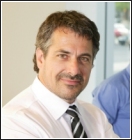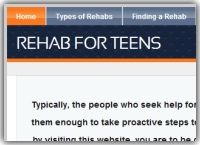 Methadone.US has successfully educated and enlightened many thousands of online visitors over the last two years. Our goal has been to demystify & destigmatize opioid replacement therapy, and to highlight how methadone, suboxone, and other treatment interventions can give patients a new lease on life.
Methadone.US has successfully educated and enlightened many thousands of online visitors over the last two years. Our goal has been to demystify & destigmatize opioid replacement therapy, and to highlight how methadone, suboxone, and other treatment interventions can give patients a new lease on life.
It is important to emphasize that methadone and suboxone are medically-approved treatments in wide use across the United States and the world. In the US, these medications are prescribed and administered under the supervision of a physician. A physician is at the core of every methadone clinic, and it is the physician who is authorized to prescribe suboxone for opioid addicted patients needing relief and hope.
On our city pages, Methadone.US lists local physicians who are certified to write prescriptions for buprenorphine (suboxone). Our lists are drawn from the United States government database at SAMHSA (Substance Abuse and Mental Health Services Administration). Our city pages are fairly extensive and cover most of the continental United States. However, suboxone and methadone treatment have become so popular that even smaller towns now often have medical professionals providing some form of opioid addiction treatment.
Suboxone doctors and opioid treatment specialists are very much needed in response to the country’s growing opioid addiction problem. Suboxone doctors are in a unique position to not only offer much desired relief from opioid withdrawal, but they can also promote with patients the importance of committing themselves to a process of counseling, recovery, and long-term behavior change such that ongoing drug abstinence becomes possible.
Many suboxone-certified physicians are also board certified addictionologists. This means that they have received special training in identifying & treating addiction disorders of all varieties.
If living in the New York metropolitan area, you can obtain more information about local suboxone doctors at: NewYorkSuboxone.com
For those in the Los Angeles metro area, visit: LosAngelesSuboxone.com

 Follow
Follow

 How doctors view methadone is becoming a hot topic. A friend recently informed me that the TV celebrity doctor, commonly known as Dr. Drew, was against methadone and had publicly made negative comments about the medication. I was disappointed to learn of this because Dr. Drew has a fairly large national audience who follow his opinion on medical matters. I then noticed that Dr. Jana Burson (a well-educated and experienced opioid addiction professional)
How doctors view methadone is becoming a hot topic. A friend recently informed me that the TV celebrity doctor, commonly known as Dr. Drew, was against methadone and had publicly made negative comments about the medication. I was disappointed to learn of this because Dr. Drew has a fairly large national audience who follow his opinion on medical matters. I then noticed that Dr. Jana Burson (a well-educated and experienced opioid addiction professional)  A majority of clients who enter methadone programs do so without immediate family involvement in the admissions process. Often, a significant other knows of their loved one’s decision to enter treatment, but chooses to remain “on the outside”. There are several reasons for this including: apprehension about methadone clinics, feelings of embarrassment that their loved one has an opioid addiction, not wanting to invest time in the recovery process, or simply being too busy to spare the time.
A majority of clients who enter methadone programs do so without immediate family involvement in the admissions process. Often, a significant other knows of their loved one’s decision to enter treatment, but chooses to remain “on the outside”. There are several reasons for this including: apprehension about methadone clinics, feelings of embarrassment that their loved one has an opioid addiction, not wanting to invest time in the recovery process, or simply being too busy to spare the time. Teen drug abuse is a persistent problem in America, and unfortunately, is on the rise again. With recent State and Federal budget cuts, funding across the country for adolescent drug treatment has dwindled. There are far fewer drug rehab facilities today than there were just 5 years ago. Locating inpatient and outpatient teen rehab programs has become a challenge for parents and adults seeking local teen drug treatment resources.
Teen drug abuse is a persistent problem in America, and unfortunately, is on the rise again. With recent State and Federal budget cuts, funding across the country for adolescent drug treatment has dwindled. There are far fewer drug rehab facilities today than there were just 5 years ago. Locating inpatient and outpatient teen rehab programs has become a challenge for parents and adults seeking local teen drug treatment resources. It has been said in the treatment and recovery community that addiction is a disease of feelings. What is specifically meant by this is that addicted individuals typically have difficulty coping with emotions and are often triggered by them to use drugs in the traditional chemical coping paradigm.
It has been said in the treatment and recovery community that addiction is a disease of feelings. What is specifically meant by this is that addicted individuals typically have difficulty coping with emotions and are often triggered by them to use drugs in the traditional chemical coping paradigm.


